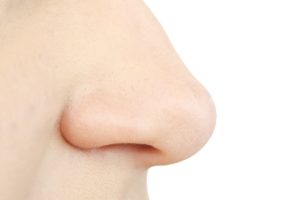 Over the years I've talked to many people who have had sinus surgeries for chronic sinusitis, many of whom have had more than one surgery. And yet they keep suffering from chronic sinusitis for years . The big question: How many people are actually helped or cured by standard sinus surgery such as FESS (Functional Endoscopic Sinus Surgery)?
Over the years I've talked to many people who have had sinus surgeries for chronic sinusitis, many of whom have had more than one surgery. And yet they keep suffering from chronic sinusitis for years . The big question: How many people are actually helped or cured by standard sinus surgery such as FESS (Functional Endoscopic Sinus Surgery)?
Well, I came across a study from 2016 looking at long-term sinus surgery (FESS) results on 560 adults. Three to 5 years after the FESS surgery, the results were pretty shocking - about 43.7% of persons were still suffering from chronic sinusitis (the researchers called it "uncontrolled"), 36.8% were somewhat better (partly controlled), and only 19.5% were feeling healthy (well controlled). Common sinus symptoms in the "uncontrolled" group were: headache, sleep disturbance, postnasal drip/secretions, and altered sense of smell.
The researchers mentioned another smaller study with similar results that looked at persons 12 years after FESS surgery: 47.4% still had chronic sinusitis (uncontrolled) and only 26.3% were doing well (controlled). They also concluded: "Therefore, better treatment strategies leading to higher disease control are warranted in CRS (chronic rhinosinusitis) care."
Hello?? Instead of surgery, try focusing on the sinus microbiome by using beneficial bacteria such as L. sakei (in Lanto Sinus, kimchi). Researchers are looking at using beneficial bacteria in the future for sinusitis treatment.
The abstract or study summary from Allergy (the European Journal of Allergy and Clinical Immunology): Real-life study showing uncontrolled rhinosinusitis after sinus surgery in a tertiary referral centre
ABSTRACT: Objectives: To study the degree of CRS control using novel EPOS control criteria at 3–5 years after a functional endoscopic sinus surgery (FESS) and correlate these data to symptoms scores.
Methods: Adult CRS patients (n = 560) who had undergone bilateral FESS for chronic inflammatory sinonasal disease 3–5 years prior to the study were included. Patients received a postal questionnaire asking for control items according to EPOS control criteria, visual analogue scale (VAS) scores for total and individual sinonasal symptoms, sinonasal outcome test (SNOT)-22 and Short Form (SF)-36 questionnaires.
Measurements and main results: About 19.5% of CRS patients were well controlled, with 36.8% of patients being partly controlled and 43.7% uncontrolled. The levels of control corresponded to mean total VAS, SNOT-22 and SF-36 scores. Subgroup analysis revealed that female gender, aspirin intolerance and revision FESS were associated with higher prevalence of uncontrolled CRS, whereas allergy, asthma and smoking status did not alter the percentage of patients in each category of control. In 81 patients attending the outpatient clinic, nasal endoscopy changed classification in only four patients (4.9%).
Conclusions: Based on the novel EPOS control criteria, at least 40% of CRS patients are uncontrolled at 3–5 years after FESS. Therefore, better treatment strategies leading to higher disease control are warranted in CRS care.
